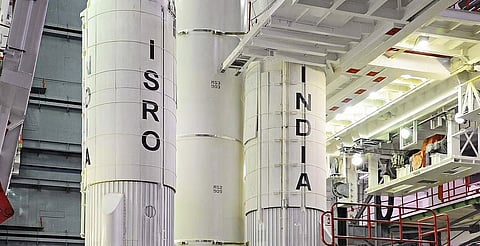

Following the success of Chandrayaan-3, the Indian Space Research Organisation (ISRO) has opened opportunities for researchers to analyse archival data on Venus, paving the way for India’s first Venus mission, reported The New Indian Express.
The Venus Orbiter Mission (VOM) is scheduled for launch in March 2028. It aims to study Venus’ surface and subsurface geology, examine atmospheric composition and dynamics, explore the ionosphere and its interaction with solar radiation, and understand how Venus evolved differently from Earth.
Research areas for scientists
ISRO has invited research proposals to strengthen the scientific community around VOM, focusing on Venusian morphology and topography, geological mapping and mineralogy, atmospheric structure and composition, ionospheric studies, and modelling of Venus’ atmosphere and ionosphere.
The spacecraft will carry advanced instruments, including an S-band synthetic aperture radar, radar for ionosphere and subsurface studies, a thermal camera, a cloud monitoring camera, an atmospheric spectropolarimeter, solar occultation photometry, and a retarding potential analyser.
These payloads will allow in-depth exploration of Venus’ surface, atmosphere, and interaction with solar radiation.
How to participate?
Researchers can submit their proposals to the office of the Director, Science Programme Office, Antariksh Bhavan, Bengaluru, or via email.
Approved proposals will be funded for a three-year research period, giving scientists the chance to utilise Venus data and contribute to India’s pioneering planetary mission.
